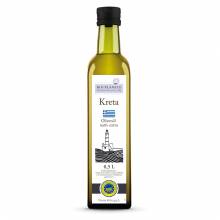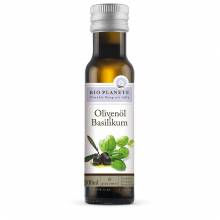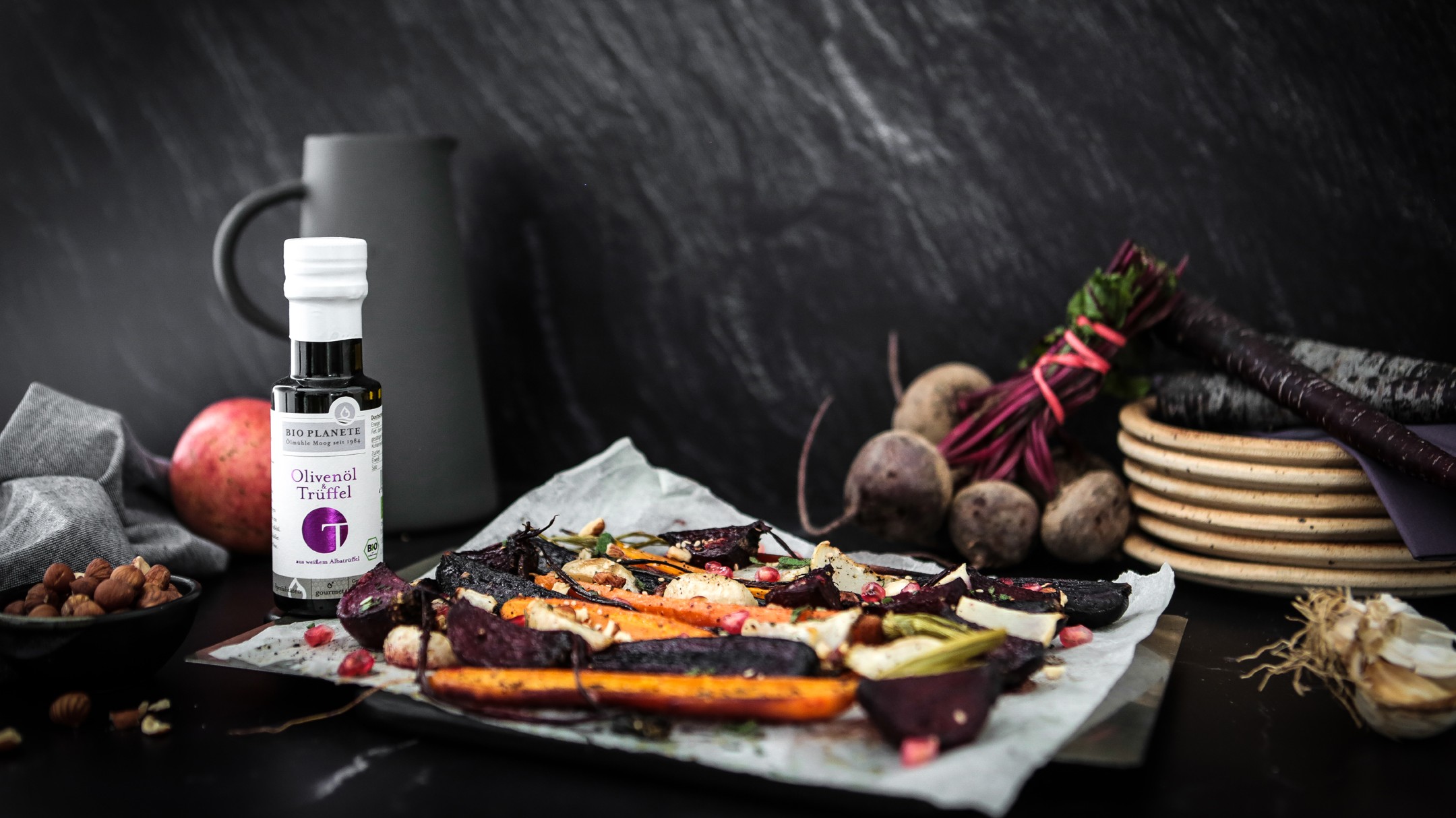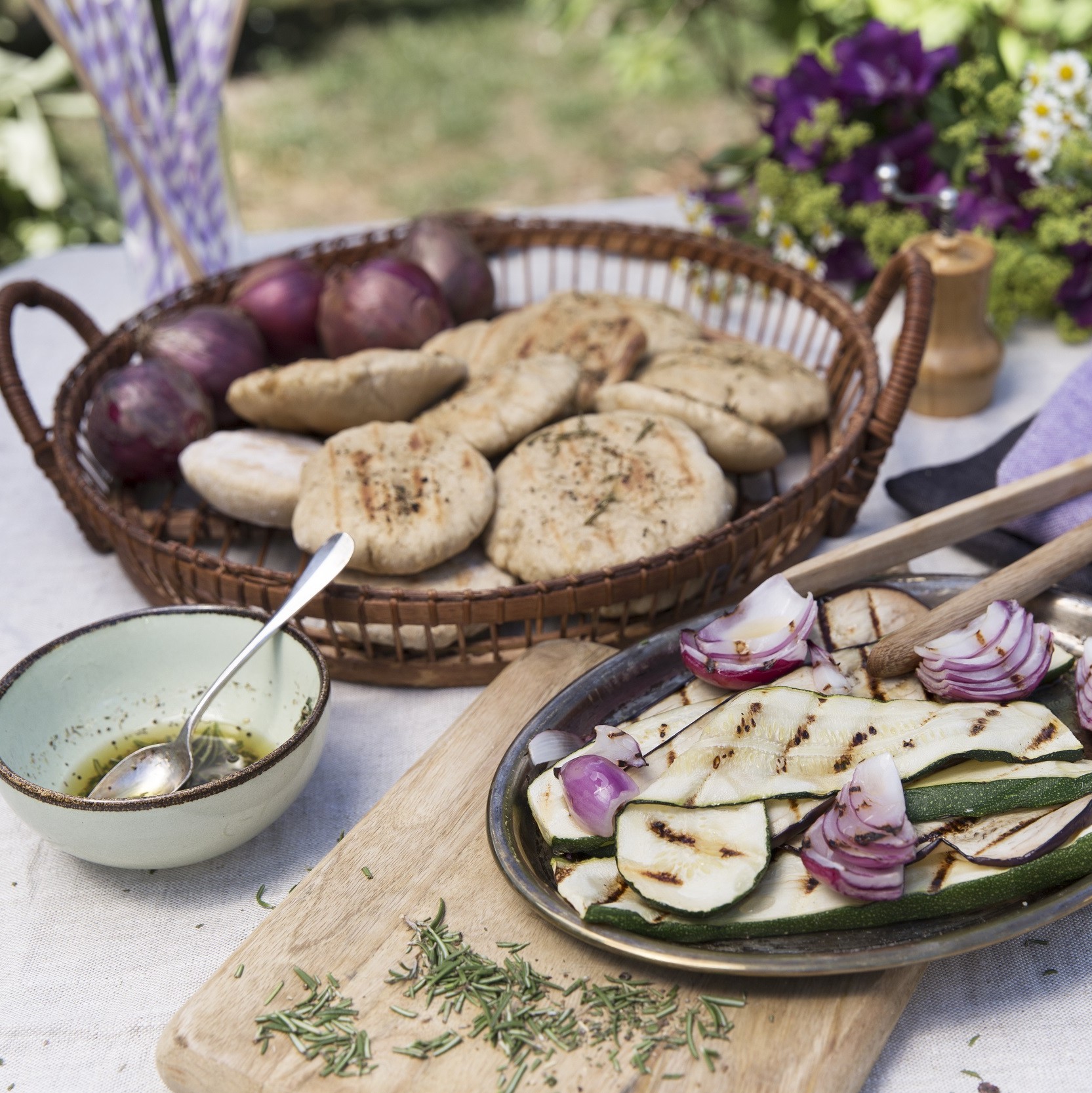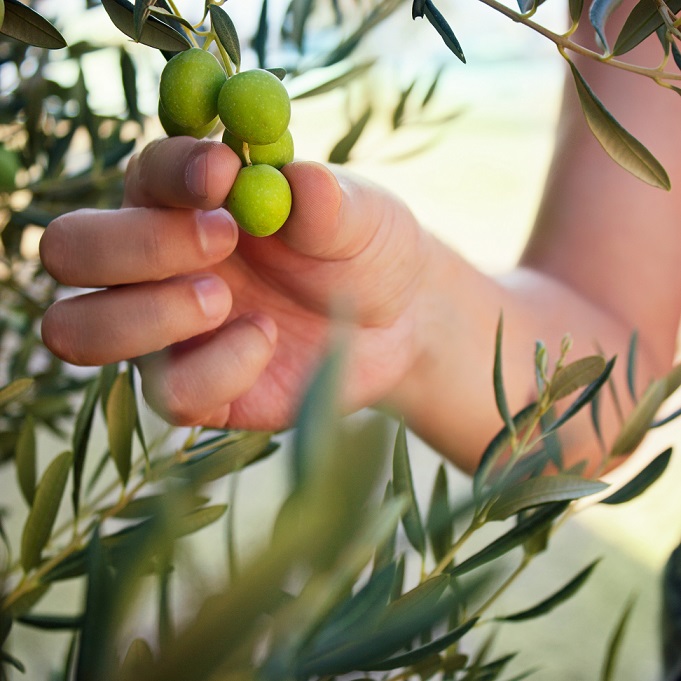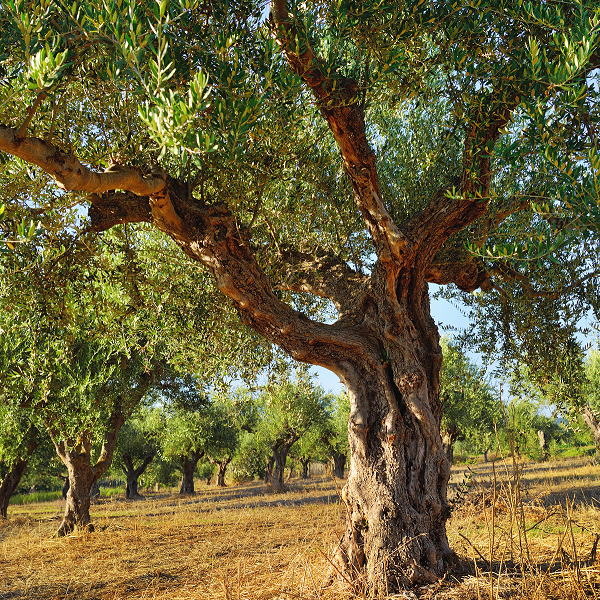
Olive Oil & Truffle
· Specialties ·
100 ml
Lovers of natural truffle oils will be delighted: In the production of Olive Oil & Truffle only fresh Italian truffles have been used. This exquisite choice makes our precious composition one of the few truffle products to do completely without added essential oils or flavours – 100% natural and 100% organic.
The truffle has been referred to as the “diamond of the kitchen” – one reason for this term lies in its potential of giving a unique culinary magic to food. The other reason is their rarity. For our Olive Oil & Truffle, we have chosen the highly regarded queen of all truffle types: the Italian Alba truffle. The truffles are put in premium cold-pressed Italian Olive Oil into which they release their magnificent aroma (maceration).
This oil is one of the first food products in Germany and France which has been rated with the Planet Score. For this eco-labelling, additional indicators are used alongside the life cycle assessment to better capture the environmental impact of food production. Read more about the Planet Score.
Ideas for recipes and use of Olive Oil & Truffle
This condiment oil will impress you with a balanced, yet intensive aroma of fresh truffles. A few drops are enough to deliciously round off your risotto creations, pasta or potato dishes, or an elegant carpaccio. The Olive Oil & Truffle can be heated and is suitable for baking.
You are also welcome to try out our olive oil specialties: Olive Oil & Basil, Olive Oil & Garlic and Olive Oil & Chilli.
When harvesting our olives, we can rule out the possibility of birds being killed by high-end automated harvesting equipment. We are in constant close contact with our farmers, who only harvest olives during the day using gentle vibration machines or by hand. Learn more about olive harvesting techniques here.
* Product of organic farming
Average nutritional analysis for 100 ml
** % of daily reference intake (adults)
A few drops suffice.
-
What does cold pressing mean?
"Cold pressing" assumes that no external heat is added. When we cold-press oils, the temperature is monitored and we ensure that no high temperatures are reached. We can therefore guarantee that the quality of the oil is not impaired.
-
How long can I keep Olive Oil?
In contrast to wine, Olive Oil does not get better with age. Its essential components, such as mono-unsaturated fatty acids, vitamin E and polyphenols are broken down when stored for a long time. This also creates substances which negatively impact on taste. That's why you should use Olive Oil within a year or at most two years of it being harvested. The use-by dates give you a safe guidance value of good quality and taste.
-
How are olives harvested? Do birds die during olive harvest?
No. Our olives are harvested by hand using gentle rocking techniques. The olives fall on a collecting screen which the farm labourers can remove. We maintain continuous close contact with our farmers and can definitively confirm that, in the absence of highly automated harvesters, no songbirds are killed. Our farmers grow their olives in traditional regions using old, large olive trees on rocky ground which make it impossible to use such harvesters.
-
How should I store Olive Oil?
Olive Oil should always be protected from light irradiation. That's why we always fill our BIO PLANÈTE Olive Oils in high-quality light-protection bottles which shield the oil from light and oxygen. Olive Oil can be stored in the fridge, but this is not a requirement. It also lasts for many months at room temperatures.
-
Can I still use flaky Olive Oil?
Olive Oil can become flaky at temperatures below +7°C. This is normal and does not influence its quality or taste. If you increase ambient temperature again, the oil will liquefy again within only a few hours.
-
Is the BIO PLANÈTE Olive oil & Truffles vegan?
The truffles are collected between mid-September and the end of December. The gatherers – locally called "Trifolau" – collect truffles in the mountains at dusk and in the dark. The Trifolau are helped in their search by trained mixed breed dogs who sniff out the truffles with their especially good sense of smell. Since dogs are used in finding the truffles, we have decided to label the oil as "not vegan".
-
How can you guarantee that these are organic truffles?
The truffles grow in a private woodland. This woodland is left to grow naturally and separated from the surrounding areas with fences. It is used exclusively as the habitat for the truffles used in our oil.
-
What conditions and standards are behind the organic seal on our oils?
An organic seal is a quality and test seal with which products from organic farming are marked. In 2010, a binding new organic seal was introduced throughout the EU, also known as the EU organic logo, which identifies food from organic farming (a star-shaped leaf on a green background).
This seal replaced the German state organic seal (green hexagon with "BIO" lettering), which had existed since 2001, with the same standards in terms of content. Due to the high degree of popularity of its predecessor, both seals are still often used today.
The use of this certification is strictly regulated by the publisher and is subject to ecological requirements. Compliance with the criteria by producers is ensured by a documentation obligation as well as regular sampling and examination of product samples. Compliance with the regulations is monitored in Europe by the responsible Eco-Control bodies.
Foods labelled with the organic seal must, among other things:
• Not be produced by or with/from genetically modified organisms
• Not to be produced with the use of synthetic pesticides
• Contain no more than 5% conventionally produced components (in exceptional cases, if ingredients are not available in ecological quality, in accordance with Annex VO)
• not contain sweeteners and stabilisers as well as synthetic colourants, preservatives and flavour enhancers
• not result from monotonous crop rotations (two-, three- and four-field farming)
• and much more: more information on the EU Organic Label -
Can I use the oil even after the expiration date?
We can no longer guarantee the oil's perfect quality after its best before date.
In the interest of sustainability, however, we would like to point out the following: vegetable oils do not belong to the group of very sensitive foodstuffs and can usually still be consumed after the best-before date. This is especially true if the bottle is still sealed and it has been stored away from heat sources. Therefore, we recommend using your senses to test the oil before disposing of it. Oil that has been stored for too long can be easily recognized by smell and taste. If it tastes rancid or unusual (off), it should not be consumed. -
How do I remove the labels from the jars and bottles?
Since we use oil-soluble glue for the labels, the best way to remove the label from the coconut jars is with oil. Simply coat the label with oil, let it absorb overnight and peel off easily in the morning. However, if the label is already off and only the glue is on it, this method doesn't work as well. In this context, we have been told of positive experiences with orange oil cleaner, such as from AlmaWin or Sodasan. Another option is a hair dryer - because heat also loosens the label well.
Get more suggestions at Upcycling & Creative.
